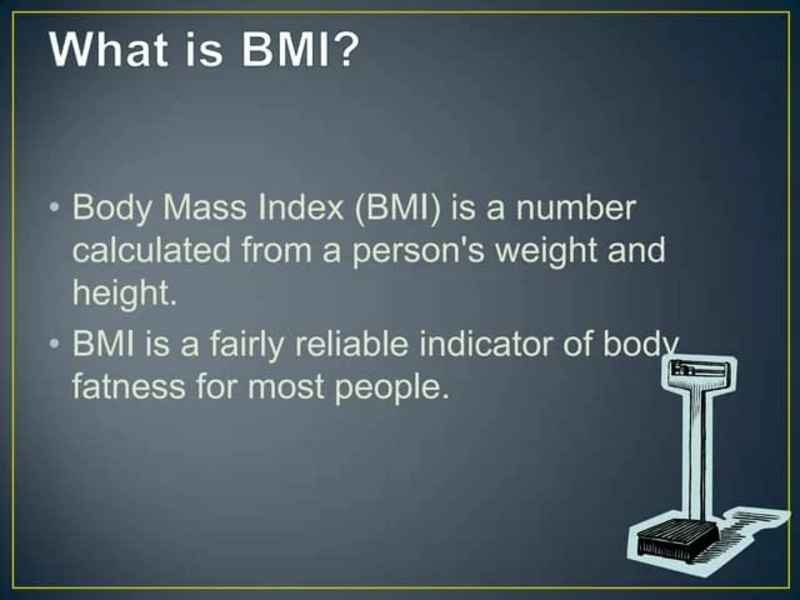nderstanding Healthy Weight and Its Importance
Keeping a good body weight is very important for total health and long life. It impacts many parts of your health, like how your metabolism works, and the state of your heart's health, and it can add to the danger of getting constant illnesses such as diabetes or high blood pressure. Having a healthy body weight improves how well you live by letting you move around more easily and having more energy. Knowing what is a good weight can help people to make improved lifestyle decisions. In this article, we will discuss ideas connected with healthy weight, methods for managing weight, the importance of Body Mass Index (BMI), and um useful advice for reaching and keeping a good body weight.
Defining BMI and Its Role in Weight Management

Body Mass Index, or BMI for short, is a common method to check body weight compared to height. It classifies people into four groups: underweight, normal weight, overweight, and obesity. To work out someone's BMI you need to divide their weight (in kilograms) by the square of their height (in meters). While it may not give an accurate amount of body fat a person has. For most individuals, it gives them a reasonable estimate. It is useful in finding out people who might be prone to health issues due to excessive weight or obesity. But, it's crucial not to forget that factors such as muscle mass, bone strength, and how fat spreads over your body are not considered by BMI and these can also affect overall well-being.
- BMI Limitations: BMI does not differentiate between fat mass and muscle mass, which can lead to misleading classifications.
- Alternative Metrics: Waist circumference and body composition analyses can provide additional insights into health risks.
Measuring Your Witeight - Best Practices
For good health management, correct weight measurement is critical. For trustworthy results, use a digital scale for exact measurements. Try to weigh yourself same time every day ideally in the morning before having food or drink and after going to the bathroom so that it's consistent. It is also suggested that you wear the same kind of clothes or no clothes at all for less variation. Continually watching your weight can identify patterns over time, necessary for properly managing weight. Maintaining a diary of your weight could improve responsibility and encourage you to stay committed to your health goals.
- Optimal Timing: Weighing yourself at the same time daily can help ensure consistency in tracking.
- Scale Calibration: Regularly check that your scale is calibrated correctly to ensure accurate measurements.
Creating a Balanced Diet for Healthy Weight Management
For a healthy weight and good weight management, it is very important to have a balanced diet. Concentrating on entire foods like fruits, vegetables, proteins that are lean, whole grains, and healthy fats can help you manage your weight well. It's also crucial not to eat processed food that contains sugars in high amounts and fats unhealthy for the body. Control of food part is very crucial in controlling diet. Eating too much can take in many calories. Think about using small plates to help see how much you are eating. Drinking lots of water is also important because it helps control hunger and assists with your body's metabolic processes. Knowing about food labels and keeping in mind the calorie content could make you choose more health-promoting options.
- Nutritional Diversity: Incorporating a variety of food groups can ensure you're getting essential nutrients.
- Mindful Eating: Paying attention to hunger cues can prevent overeating and promote healthier eating habits.
Incorporating Physical Activity into Daily Routine
To keep a healthy weight and good health, you must do regular physical activity. Doing different aerobic exercises like walking, running, or cycling as well as strength training will help manage your weight better. Try to aim to do moderate aerobic activity at least 150 minutes per week with muscle-strengthening workouts on two days or more each week. Discovering things you like doing can aid in blending physical activity into your daily habits. Minor shifts, for instance using stairs over the lift or taking a stroll during lunch intermissions, could greatly improve how active you are. Regularity is essential; incorporating exercise as a usual part of life could result in stable weight control.
- Varied Workouts: Mixing different types of exercise can prevent boredom and enhance overall fitness.
- Setting Reminders: Scheduling workouts can help ensure you stay committed to your physical activity goals.
Setting Realistic Goals for Weight Management

The setting of achievable and practical weight management goals is very important for success. It's good to aim at gradual loss of weight, like 1 to 2 pounds per week because it is usually safe and can be kept up with. Having short-term goals could give enthusiasm while trying to reach long-term targets. It's important to concentrate on actions, not just losing weight. This involves embracing better eating practices, more physical exercises, and improvement of entire wellness. Regular checking and modifying your objectives based on development can heighten your dedication toward a healthy way of living. Acknowledging little achievements stepwise could provide positivity and help maintain stimulus throughout the proofs for managing weight.
- SMART Goals: Specific, Measurable, Achievable, Relevant, and Time-bound goals can enhance focus and success.
- Progress Tracking: Keeping a journal of your journey can help maintain accountability and motivation.
Overcoming Challenges in Weight Management
A lot of people have problems keeping their weight healthy. Things like emotional eating, pressure from society, and busy ways of life could slow down the progress. Knowing what triggers lead to bad eating habits is the initial stage in beating these difficulties. Creating plans to handle stress and feelings without using food is very important. You should create a network of support, it could be friends family, or even weight loss communities. They can give you the motivation and responsibility needed. Keep in mind that having difficulties during your journey to manage weight is normal; what's crucial is how you react to these problems. Keeping focus on your goals and holding a positive attitude can greatly influence your success in reaching and keeping a healthy weight.
- Identify Triggers: Understanding emotional triggers can help develop effective coping mechanisms.
- Seek Support: Engaging with a community can provide motivation and resources during challenging times.
Conclusion
To sum up, knowing about healthy weight, the importance of BMI, and putting into action helpful strategies for managing weight can enhance health and wellness. Concentrating on balanced dieting, continual physical exercise, setting practical aims as well as tackling hurdles allow persons to manage their healthiness and fulfill their objectives in handling body mass.










